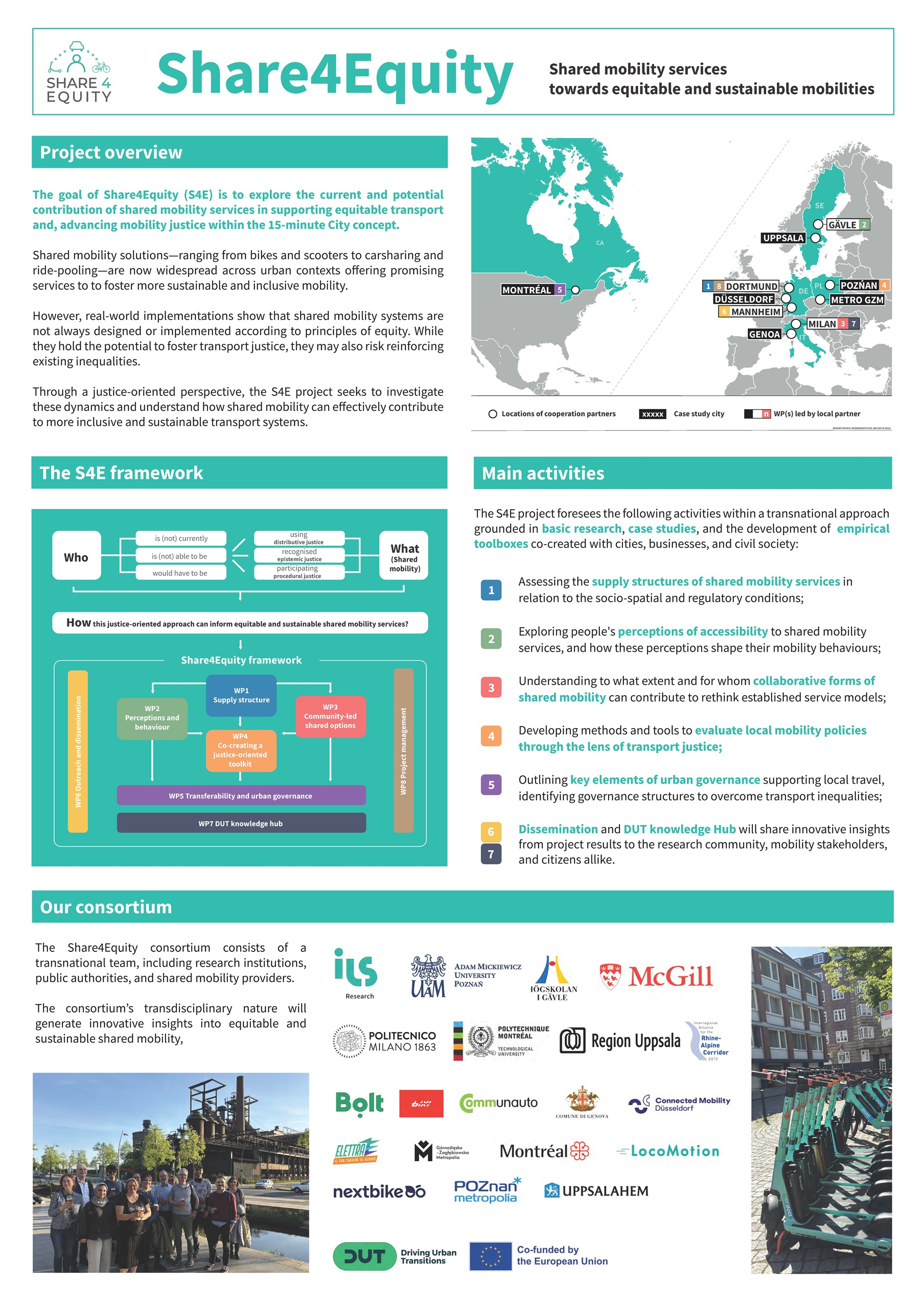
Share4Equity explores the current and potential contribution of shared mobility services in supporting equitable and sustainable transport solutions and in advancing mobility justice within the 15-minute City concept.
Shared mobility services—in their many forms—are increasingly integrated into urban transport systems worldwide. These services hold significant potential to promote sustainability and inclusion. They can do so, especially by addressing mobility needs currently not met by conventional transport, particularly in relation to transport poverty. However, in practices, shared mobility systems are not always designed or implemented according to principles of equity. While they may have the potential to reinforce transport justice, they can also inadvertently undermine it.
Within the project, shared mobility services refer to car-, bike- and e-scooter sharing that are collectively used by individuals. This diverse set of transport services includes those formally provided by licensed/authorised suppliers or organisations as well as community based or informal sharing mobility services like peer-to-peer shared mobility services.
All these shared mobility services are part of local transport systems and as such shaped by rules and regulations, local governance, policies and practices and respective mobility cultures. Therefore, Share4Equity is concerned with not only the types of shared transport means or their distribution, but also with user perceptions and experiences, as well as inclusivity of services and organisational and system-related aspects in relation to transport justice. The project aims to explore these issues from a justice-oriented perspective, examining how shared mobility can effectively contribute to fairer and more sustainable urban transport solutions.
Expected outcome
The Share4Equity consortium—composed of research institutions, public authorities, and shared mobility providers—will generate new empirical knowledge and insights into the relationship between supply and demand for various forms of shared mobility, including collaboration-based models. Three main outcomes are expected:
- A contribution to the exploration of the social and spatial implications of sharing mobility systems, examined through the lens of justice and equity. The focus is placed on availability, the perceptions of (non-)users, policy implications, and the role of social collaboration and co-creation related to these transport options.
- A set of empirical toolkits combining quantitative and qualitative methods, including spatial modelling, mobility behaviour diaries, back-casting and co-creative workshops, and a testbed approach.
- A justice-oriented toolkit for policy evaluation, which will be co-created with cities and sharing mobility providers to further sustainable shared mobility services within the 15-minute city.
